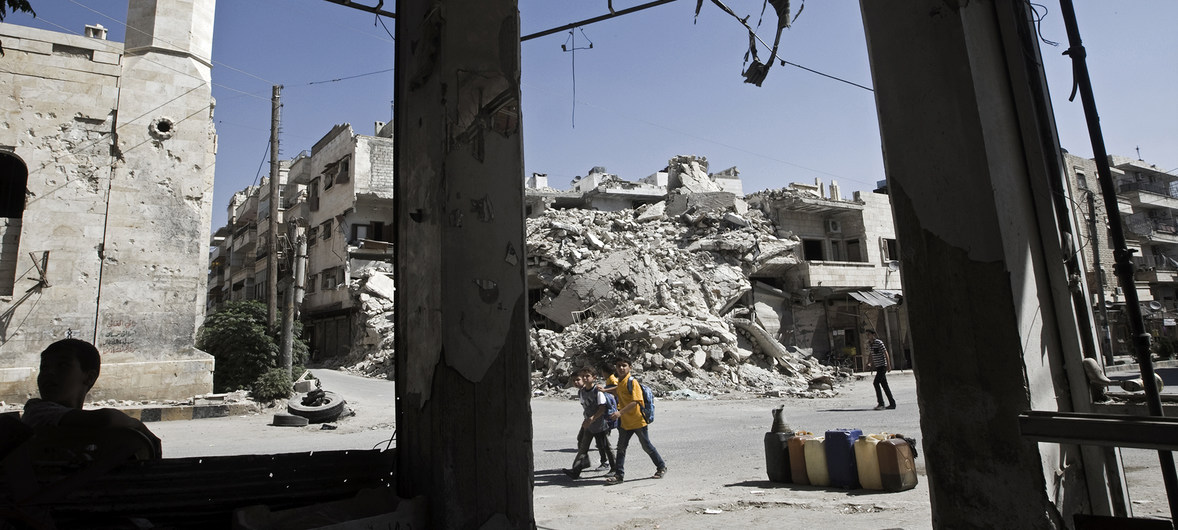
Boys pass rubble and destroyed buildings on their way to a nearby school offering basic lessons, in the city of Maarat al-Numaan, Idlib Governorate. (Photo credit: UNICEF/Giovanni Diffidenti)
2018-06-12
619 View
+
-
SULAIMANI — The situation inside Syria’s Idlib threatens to become “highly explosive” amid an uptick in conflict between armed groups and a spike in the number of people displaced inside the war-torn country, a top UN aid official said on Monday (June 11).
Speaking to reporters, Panos Moumtzis, Regional Humanitarian Coordinator for the Syria Crisis, said that 1.2 million of a total population of 2.5 million have been displaced, some multiple times.
Calling the situation “heartbreaking,” Moumtzis warned that Idlib was becoming a safe haven for belligerents who had been driven out of other parts of the country by the Assad regime and their Russian and militia allies.
“We have seen in the last few weeks an escalation of even fighting between these groups that has taken place,” he said, noting that fighting had been occurring around health facilities and other civilian areas.
“A special solution needs to be found for all these groups inside Idlib, because the current composition makes it highly explosive.”
The first four months of the year have seen more than 900,000 people flee their homes inside Syria, according to the UN, which is the “highest displacement number since the conflict started.”
Most of the newly displaced came from rural Damascus, Afrin, and within Idlib.
Across Syria, more than two million people are in so-called hard-to-reach areas and around 11,000 are still under siege in three opposition-controlled locations.
Some 6.2 million people are internally displaced and a further 5.6 million have fled the country amid ongoing conflict that has claimed hundreds of thousands of lives and destroyed basic infrastructure.
With the $1.8 billion appeal for Syria only 26 per cent funded, the UN Regional Humanitarian Coordinator said on Monday that the international response to the seven-year conflict was “really at a breaking point.”
The shortage of funding meant that aid teams could not deliver “basic life-saving” aid where it was needed, despite having full access to areas such as Idlib, Moumtzis added, while calling for pledges made at a recent EU-hosted conference in Brussels, Belgium, to be disbursed promptly.
(NRT)